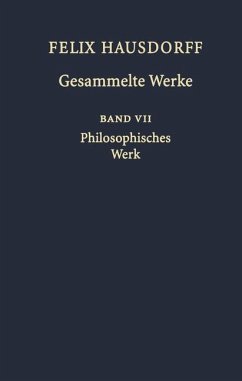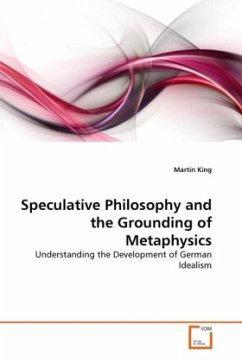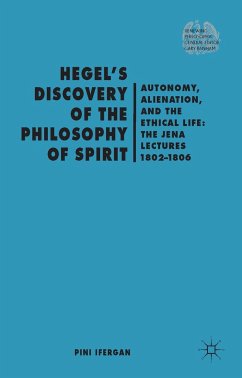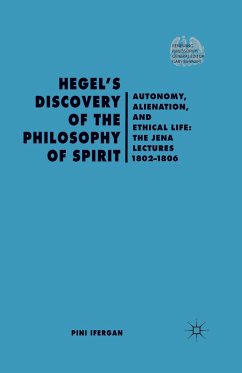
The Vocation of Responsibility
From Fichte to Levinas
Versandkostenfrei!
Versandfertig in 6-10 Tagen
39,99 €
inkl. MwSt.

PAYBACK Punkte
20 °P sammeln!
During the European Protestant Reformation, one s calling to serve humanity became connected to theaccumulation of material rewards. This notion was notnew, as it originated in the Old and New Testaments.This study traces this ethic by examining explicitand implied references to vocation in the primarytexts of five major continental philosophers.Fichte s ascetic concept required unity with a totaland holistic transcendental power. When Kierkegaardreconsidered this idealistic notion, he lamented thedisappearance of the single individual. His notion ofvocation is explicitly religious and incorpo...
During the European Protestant Reformation, one s calling to serve humanity became connected to the
accumulation of material rewards. This notion was not
new, as it originated in the Old and New Testaments.
This study traces this ethic by examining explicit
and implied references to vocation in the primary
texts of five major continental philosophers.
Fichte s ascetic concept required unity with a total
and holistic transcendental power. When Kierkegaard
reconsidered this idealistic notion, he lamented the
disappearance of the single individual. His notion of
vocation is explicitly religious and incorporates a
concept of conversion that emphasizes a response to
the suffering of others. Nietzsche s ethical concept
of responsibility is directly related to his original
notions of truth and persona as a multiplicity of
forces. For Nietzsche, being called to serve others
requires freedom from resentment and learning to love
complacently. These ethical concepts show up in
Lévinas and Derrida s postmodern ethics. Lévinas
emphasis on the other and Derrida s examination of pure giving displays how the ancient and modern
concept of vocation is articulated in original
ways.
accumulation of material rewards. This notion was not
new, as it originated in the Old and New Testaments.
This study traces this ethic by examining explicit
and implied references to vocation in the primary
texts of five major continental philosophers.
Fichte s ascetic concept required unity with a total
and holistic transcendental power. When Kierkegaard
reconsidered this idealistic notion, he lamented the
disappearance of the single individual. His notion of
vocation is explicitly religious and incorporates a
concept of conversion that emphasizes a response to
the suffering of others. Nietzsche s ethical concept
of responsibility is directly related to his original
notions of truth and persona as a multiplicity of
forces. For Nietzsche, being called to serve others
requires freedom from resentment and learning to love
complacently. These ethical concepts show up in
Lévinas and Derrida s postmodern ethics. Lévinas
emphasis on the other and Derrida s examination of pure giving displays how the ancient and modern
concept of vocation is articulated in original
ways.












